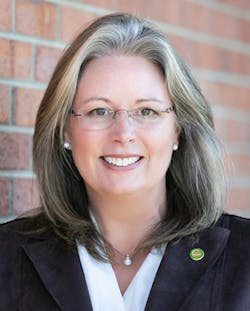CASE STUDY - Electronic Claim Payments ‘A Blessing’ for This Dental Practice
“Having the EFTs really helped to get the money back in the bank quicker. That was a blessing—that we had already signed up for, and been participating in those, for so long,” said Watson.
Watson opened her Maryville, Tennessee, practice straight out of dental school almost 25 years ago. Today she has a partner dentist, five hygienists, four dental assistants and two front office staffers. Watson Family Dentistry has been accepting EFT claim payments for the better part of the last decade. Many of the large insurers began insisting on it, and Watson said it turned out to be a big plus.
“We got our claims processed much more quickly and money went right to the bank,” said Watson. There were some reconciliation issues that took a little time to work out, but “it’s been an amazing benefit to our practice.”
Today, all in-network claims, and many out-of-network claims at Watson Family Dentistry are paid by EFT, which is also known as ACH and electronic bank transfers.
Watson estimated about 75% in total are received electronically. There are still checks, but when asked if the practice accepts virtual credit cards—and the fees that come with them—Watson has a two-word answer: “Adamantly no!”
“We know that trick and I preach against virtual credit cards all the time. We are invited frequently to participate with virtual credit cards, but we know to say no.”
The 2021 CAQH Index, released in early 2022, found that only 20% of dental claims were paid electronically, compared to 74% of medical claims. Nacha, which governs the ACH Network, has heard about a misconception among some dentists that if the claim payment amount is incorrect it cannot be returned the way a check can be mailed back. Watson has heard that, as well as the mistaken belief that insurers will just withdraw an overpayment from a practice’s account.
“When we’ve had an overpayment, what happens is what’s always happened: They request a refund or reimbursement, and we cut a check and send it back. There’s never been a case where they’ve gone into our account,” she said.
In fact, Watson said that if dentists who are skeptical of electronic payments “would take the time to really understand the EFT, the way the EFT works, how much more efficient it is for their staff and for getting money in the bank quickly,” they would realize the many advantages.
“It’s just a better, cost effective way of doing business.”
Learn more about dental EFT payments: nacha.org/achfordental
Nacha’s Brad Smith can be reached at: [email protected]
The ADA has a checklist for dentists to follow to help navigate EFT: ada.org/en/home-cps/dental-benefits/~/media/D5787FD2563141318235F9FA731B72F8.pdf
